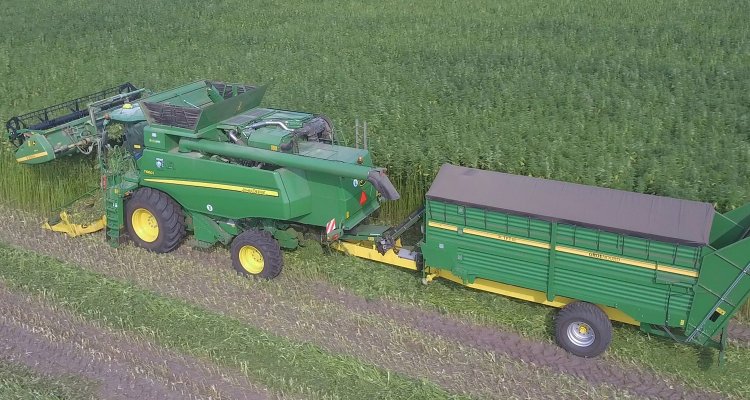
News
Working with fibre hemp: a handbook for farmers and the whole supply chain
Thanks to the new Handbook Fibre Hemp and accompanying wiki, anyone interested in working with a sustainable alternative for textiles and construction materials can now make a good start. From farmers who want to include fibre hemp in their cultivation plan through to entrepreneurs who are keen to start using hemp-based products, the Handbook Fibre Hemp will help them on their way.
Together with partners in the chain, Wageningen Food & Biobased Research has collected the essential information about cultivating, processing and using fibre hemp and made it accessible to the general public. Project leader Martien van den Oever explains why this accessibility is so important: “Fibre hemp has the potential to play a key role in making the textile and construction sectors more sustainable. And we can see even more possible applications where fibre hemp represents an effective alternative to traditional raw materials.”
Advantages of fibre hemp
Fibre hemp is often a sustainable choice, but it has other advantages too. “Fibre hemp fits in perfectly with a 3-year crop rotation, whereas a much longer period applies in the case of flax fibre. For farmers, this could be a very attractive reason for including fibre hemp in their cultivation plan”, Martien explains. “The fibre and hurds in particular can be used in countless applications, but the flowers and leaves could also be put to use, in cattle feed for example.”
Insight into fibre hemp for farmers and businesses
For farmers or other interested parties, the publication of the handbook and wiki has now made it considerably easier to gain an insight into where hemp comes from, what you can do with it and what the chain looks like. Martien: “The wiki tells you what is important, from the cultivation plan through to the product, and how to go about it. It provides explanations, background information and handy short videos.” The handbook and wiki are intended for farmers, businesses in the textile and/or construction sector and as an educational support within the sector.
This project received financial support from the Knowledge and Innovation Agenda (KIA) for Agriculture, Water and Food, in the context of the ‘Kennis op Maat’ (Customised Knowledge) programme under number KoM-21007, and was implemented by the Wageningen Research Foundation (WR), Hempflax, Ekoboerderij de Lingehof, Giesen Crop Research, JKD International/CropFour, Pantanova, Polisema, HOGENT, Saxion, HAS Den Bosch, LTO Noord and the European Industrial Hemp Association (EIHA).